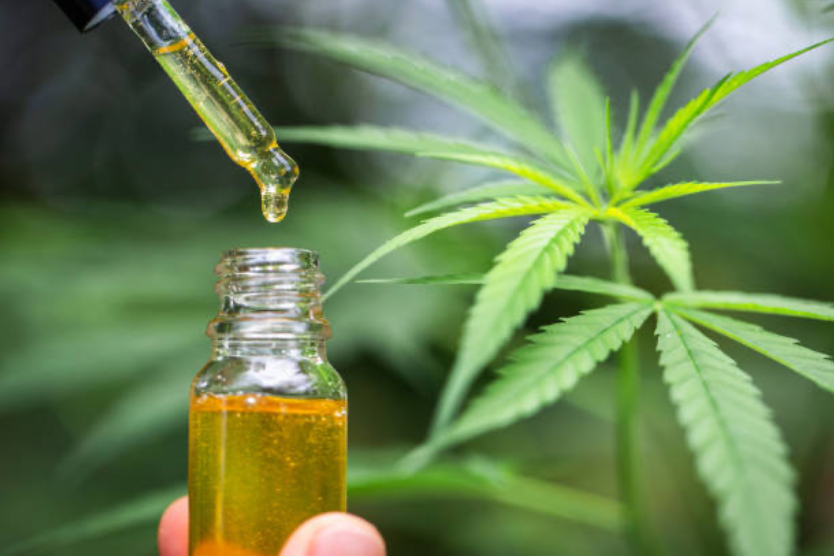by Ty Tagami | Capitol Beat News Service
ATLANTA — A year from now people in the hemp industry expect booming growth in a black market for marijuana and illicit hemp consumables.
That is when beverages, gummies and other products made with THC from the hemp plant will become illegal.
Furloughed government workers will soon get their jobs back and low-income households will get food stamps, but the government shutdown that ended Wednesday with President Donald Trump’s signature on a funding bill places a time bomb under the hemp industry.
The new law will ban over 95% of hemp extract products, including most non-intoxicating products made with cannabidiol, or CBD, according to the U.S. Hemp Roundtable, an industry group.
It will have far-reaching effects on hemp businesses and their consumers.
Sen. Mitch McConnel, R-Ky. slipped language into the legislation to restrict hemp products to 0.4 milligrams of THC, or tetrahydrocannabinol, the intoxicating, psychoactive compound found in hemp and in much greater concentrations in marijuana.
The law’s passage effectively closed an opening by Congress in 2018 that allowed a flourishing market for intoxicating products.
A year from now, hemp products will only be allowed to contain 0.4 milligrams of THC per container. In Georgia, state regulationsenacted after the 2018 federal law allowed 10 milligrams per 12 ounce beverage. Each gummy could also contain 10 milligrams, with a maximum of 300 milligrams per package.
“Our industry just got wiped out,” said Joe Salome, owner of The Georgia Hemp Company. “Anything hemp derived that has THC is no bueno anymore,” he said.
Salome said the impetus for the pending ban was growing concern about the proliferation of synthetic cannabinoid consumables, including poorly labeled products from China, made with potentially unsafe processes and grown from crops that might not follow U.S. pesticide standards. Children were getting their hands on them.
Salome and other mainstream operators shared those concerns, but he regrets that businesses like his are getting lumped with the bad actors.
“My dad always said, ‘You are who you hang out with,’” he said. “There are good actors and there are bad actors, but there are a lot more bad actors that brought this down.”
The Agriculture Improvement Act of 2018, commonly known as the farm bill, made it legal to sell products containing 0.3% Delta-9 THC by “dry weight.” Georgia’s rules also speak to that compound.
That is the loophole that allowed synthetic, highly-intoxicating products to flood the market.
“The problem is that the hemp plant contains so much CBD,” said Gregg Raduka, a founding member of Georgians for Responsible Marijuana Policy. “Because the chemical composition of CBD is so close to THC, it doesn’t take all that much chemical engineering to change the CBD into THC, but you can still call it hemp-derived THC. And therefore because it’s not Delta-9, it’s legal.”
People in the hemp industry draw parallels between the coming crackdown and what happened when the country banned alcohol, leading to a boom in organized crime.
“This is a prohibition bill. This is trying to send it all into the underground and it’s going to be around no matter what,” said Chris Karazin, founder and chief executive of Carolindica, a company in Raleigh, N.C. that manufactures and sells hemp consumables.
“It’s not like people aren’t still going to go looking for this product. You just now force it to the black market,” said Karazin, who makes products for other companies and for sale at his own stores and online, with nearly a fifth of those sales in Georgia.
Raduka recognized an irony in banning hemp consumables.
“I’m guessing here that the marijuana industry is not interested in all the competition it’s been receiving from the very high THC hemp products,” said Raduka, who retired from a career in substance abuse prevention and treatment and has been testifying at the Georgia Capitol about risks of consuming hemp and marijuana.
The U.S. Hemp Roundtable says the ban threatens a $28.4 billion industry, jeopardizing more than 300,000 jobs.
“People are going to lose their jobs. People are going to lose their houses,” said Christopher Lackner, president of the Hemp Beverage Alliance. “I know several people have second mortgages on their house because they were following the rules of the 2018 farm bill and creating this category and working with states to create regulatory frameworks.”
Karazin said his business supports a network of suppliers, from makers of syrups, packaging and marketing materials, to landlords. Bottle shops and restaurants will lose revenue on sales of hemp products, he added.
But the industry has a year to work with Congress, and Lackner and other advocates are optimistic that they can find a way to allow the market to continue while eliminating unethical actors.
Salome was trying to be optimistic about that but worried about the future. He said he had at least 50 employees to pay and five retail leases to cover.
“We owe the bank a bunch,” he said. “I hope I can keep my house.”












